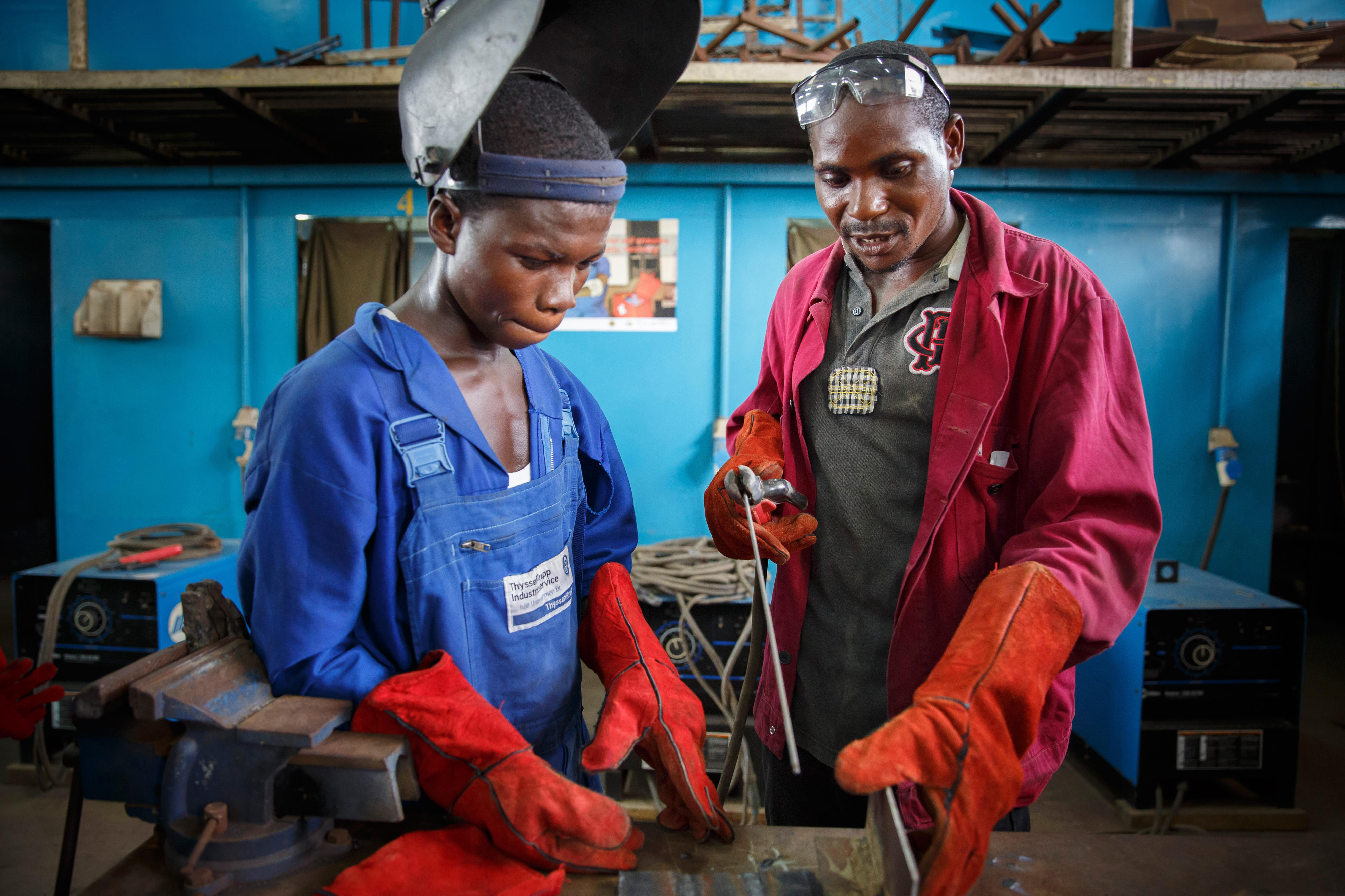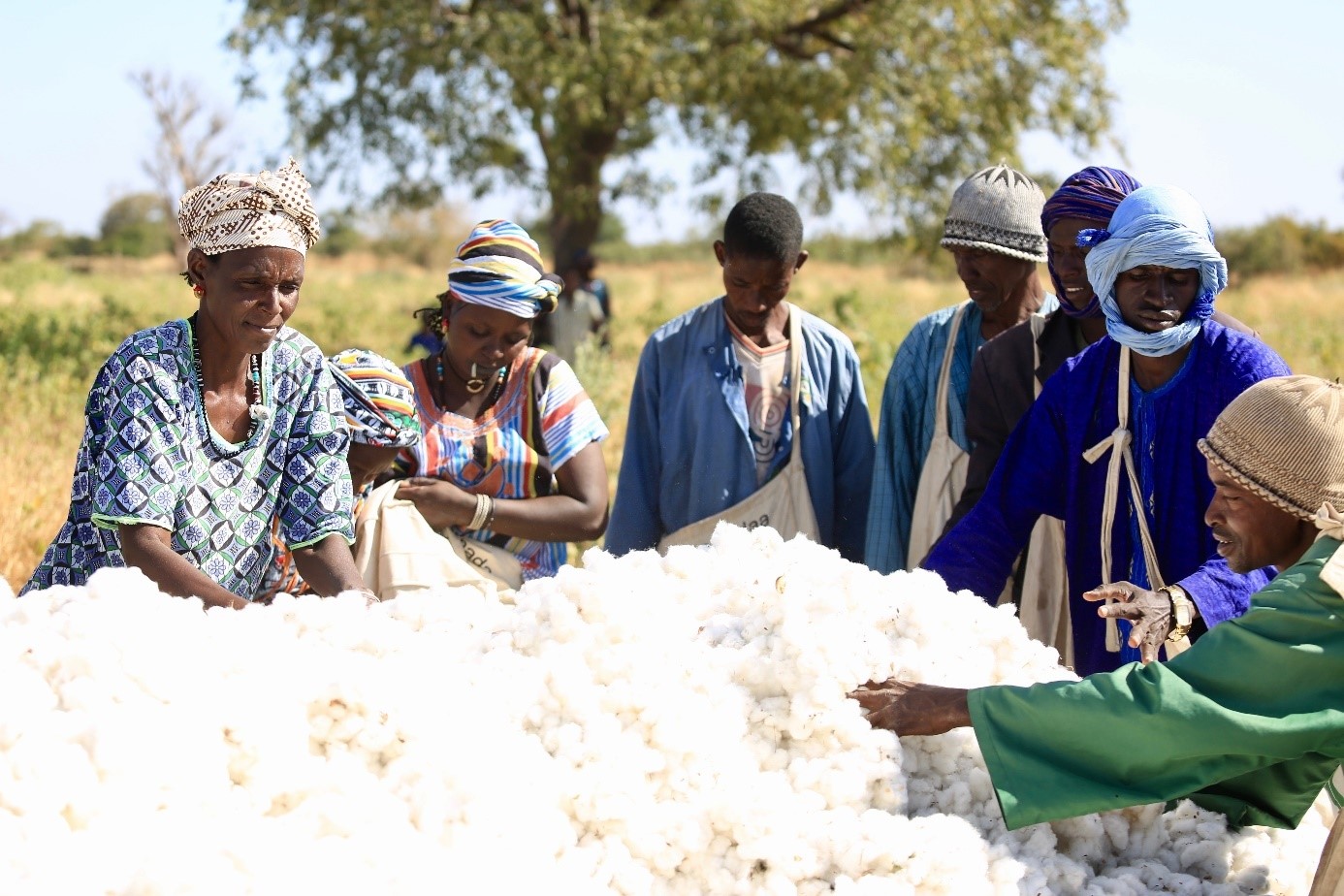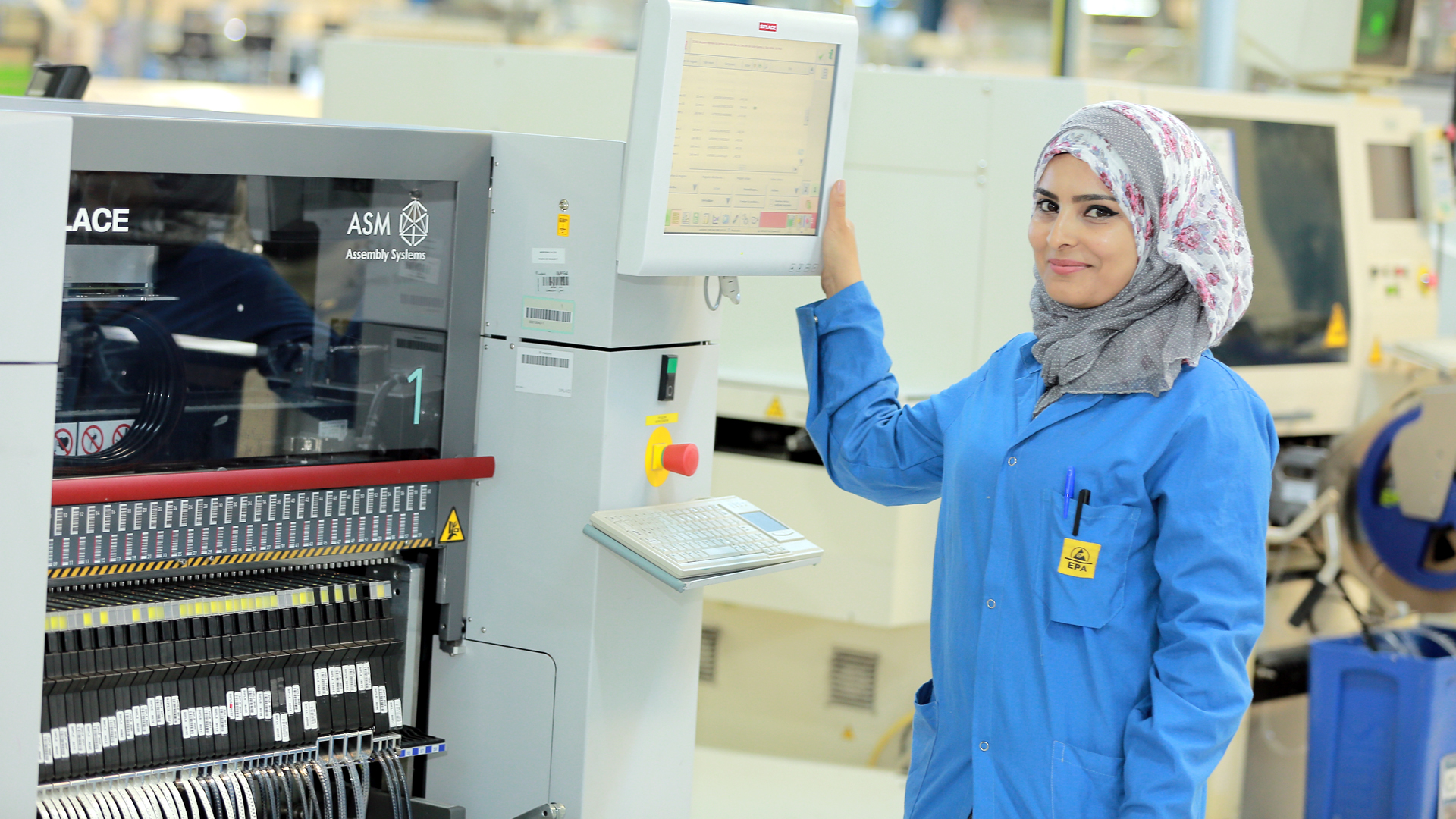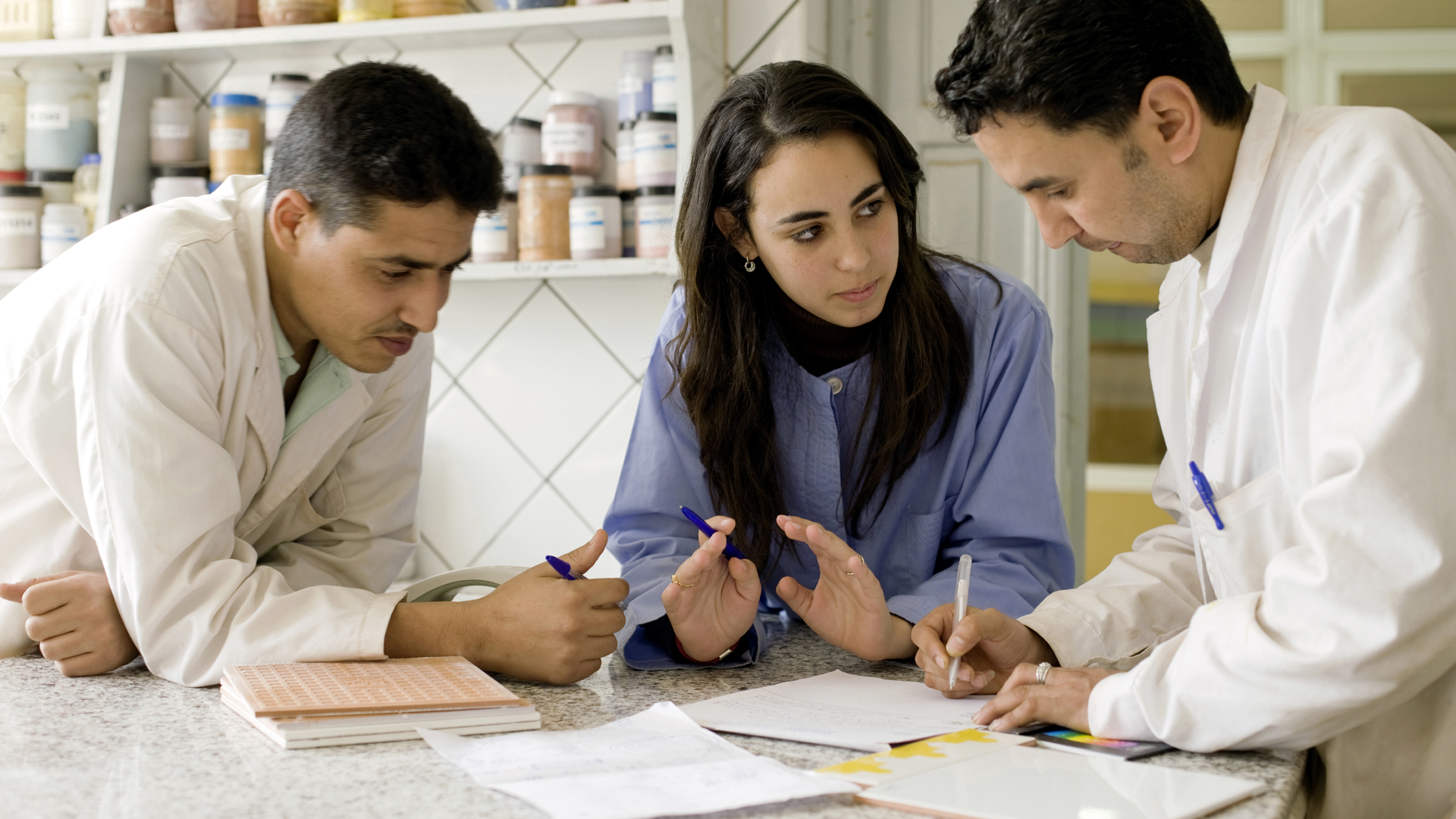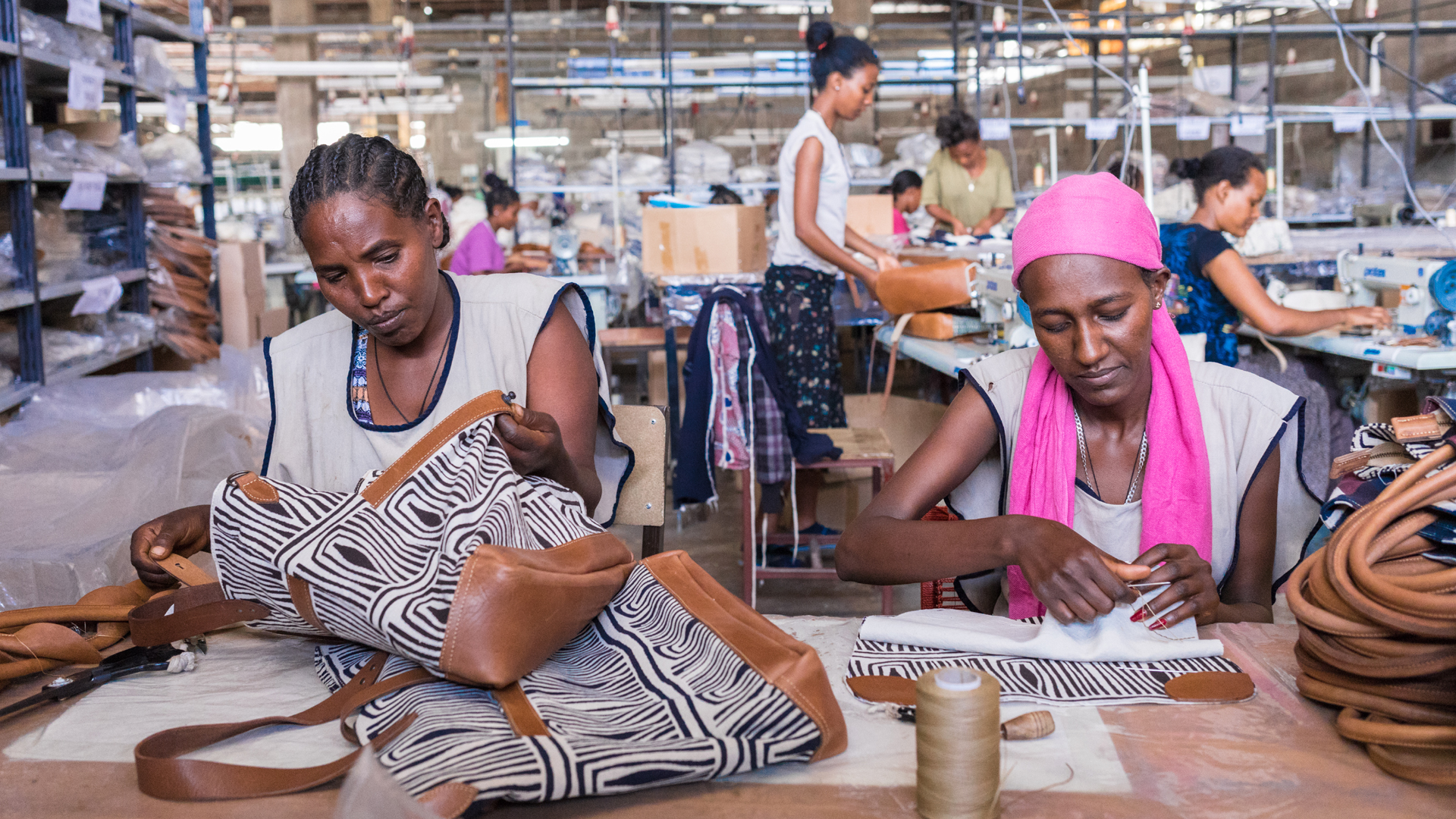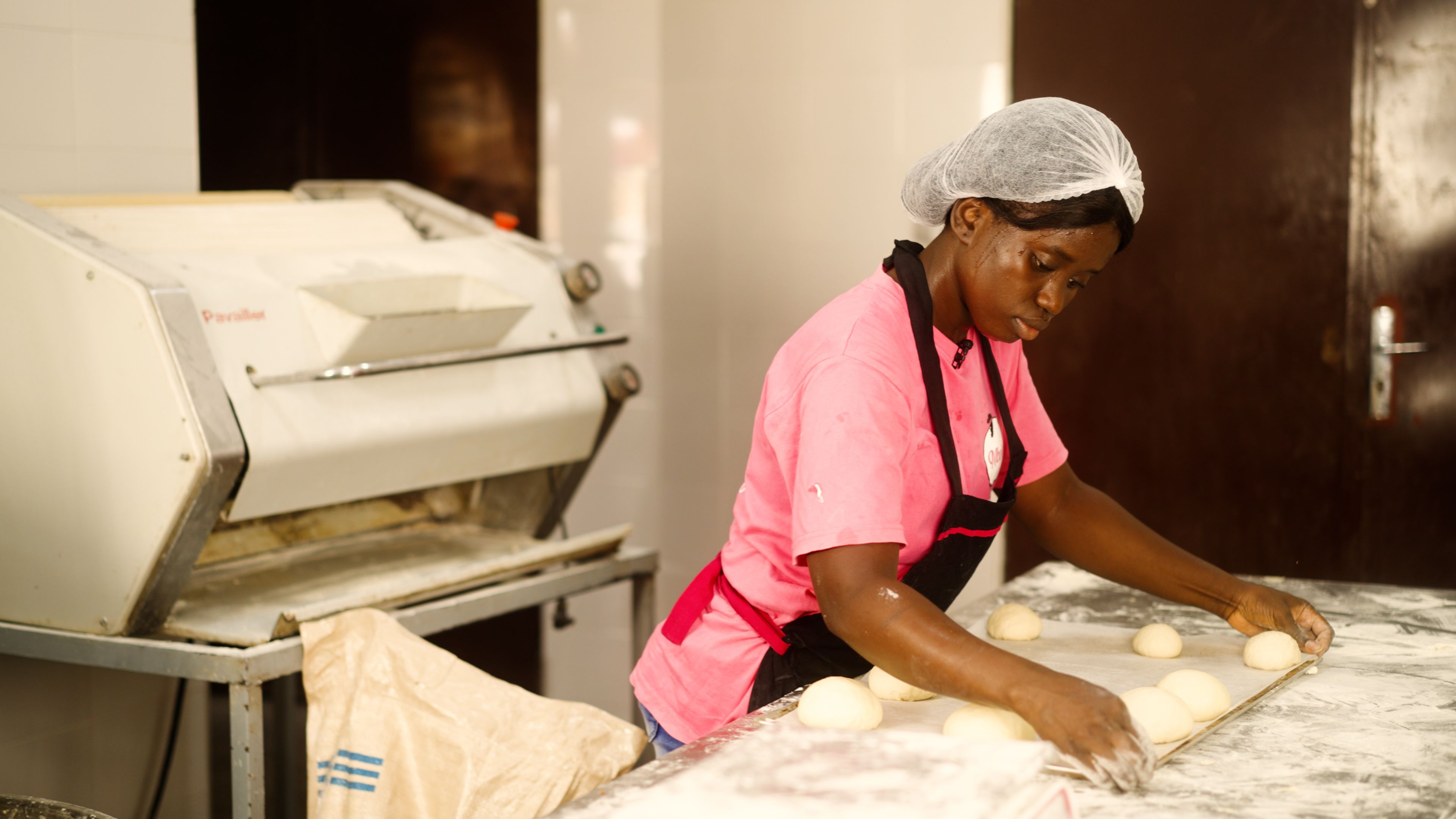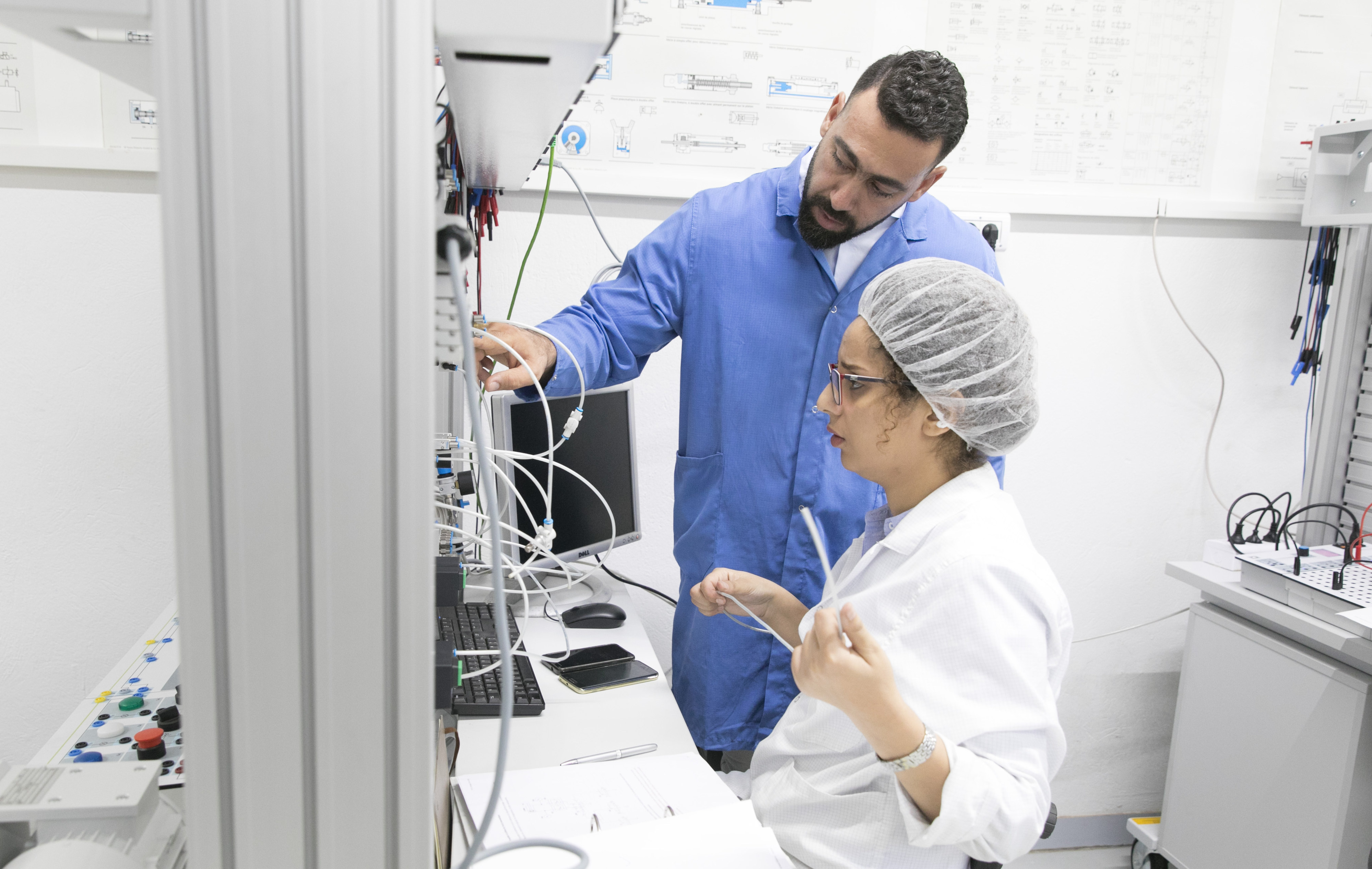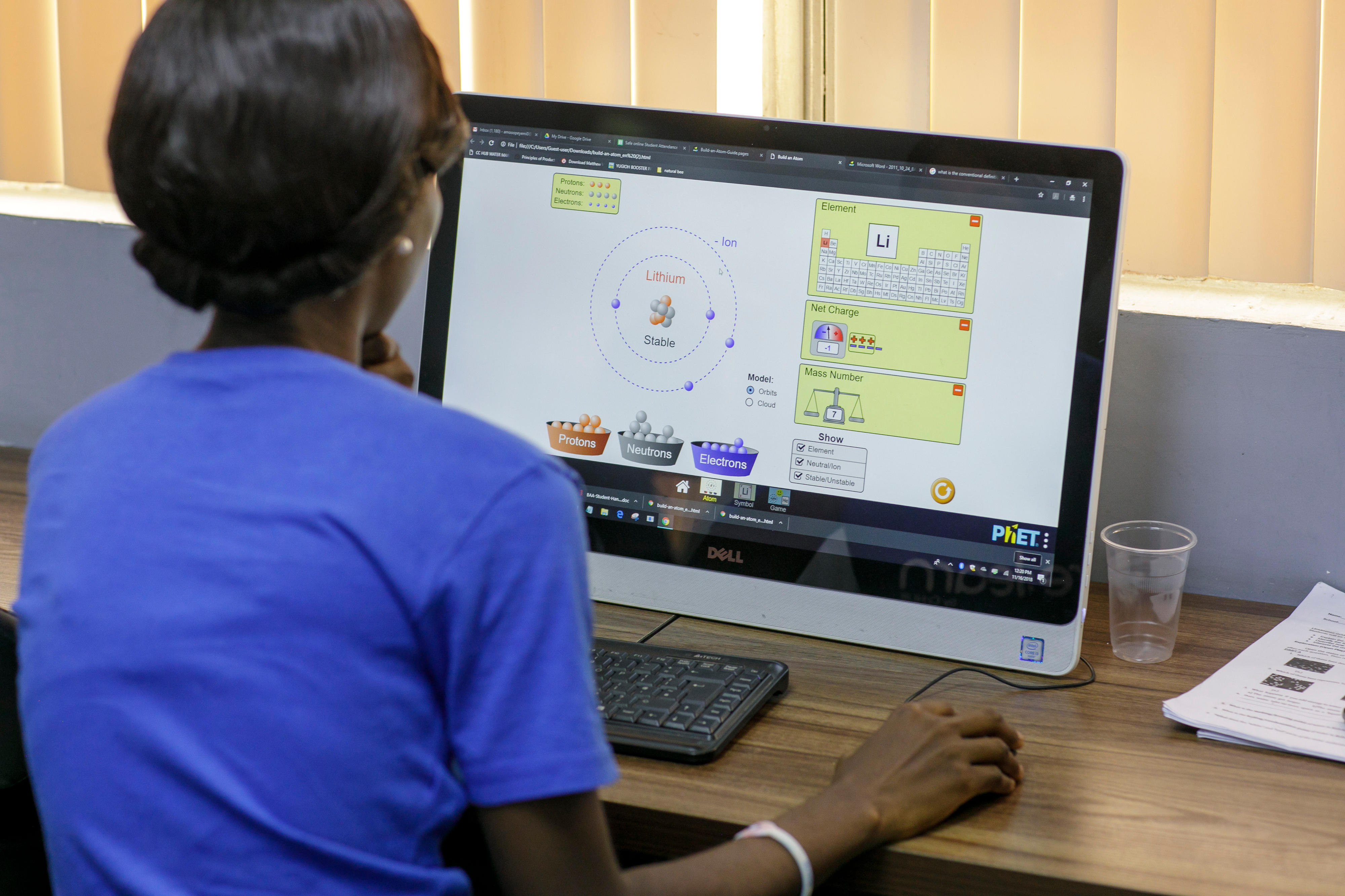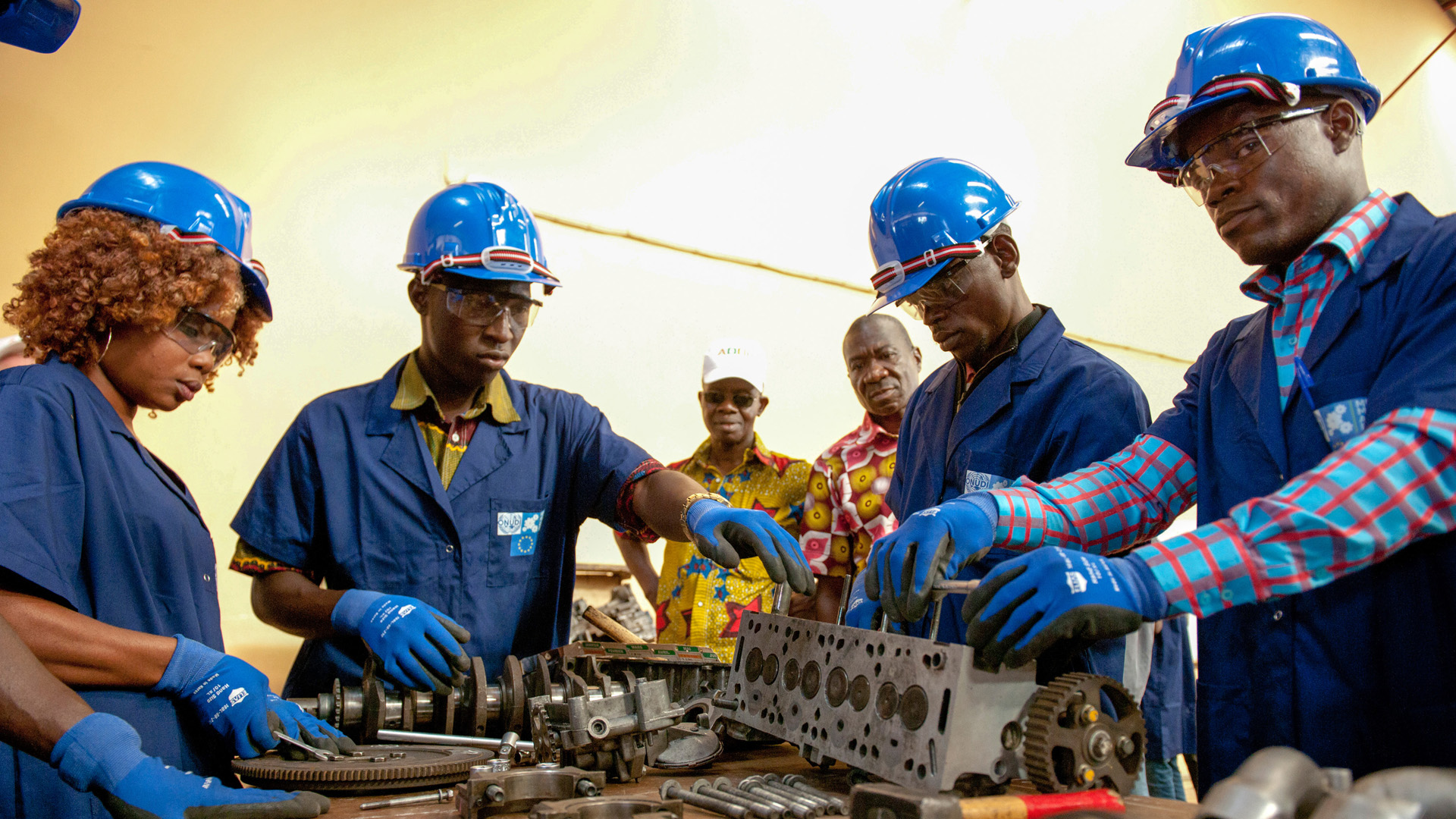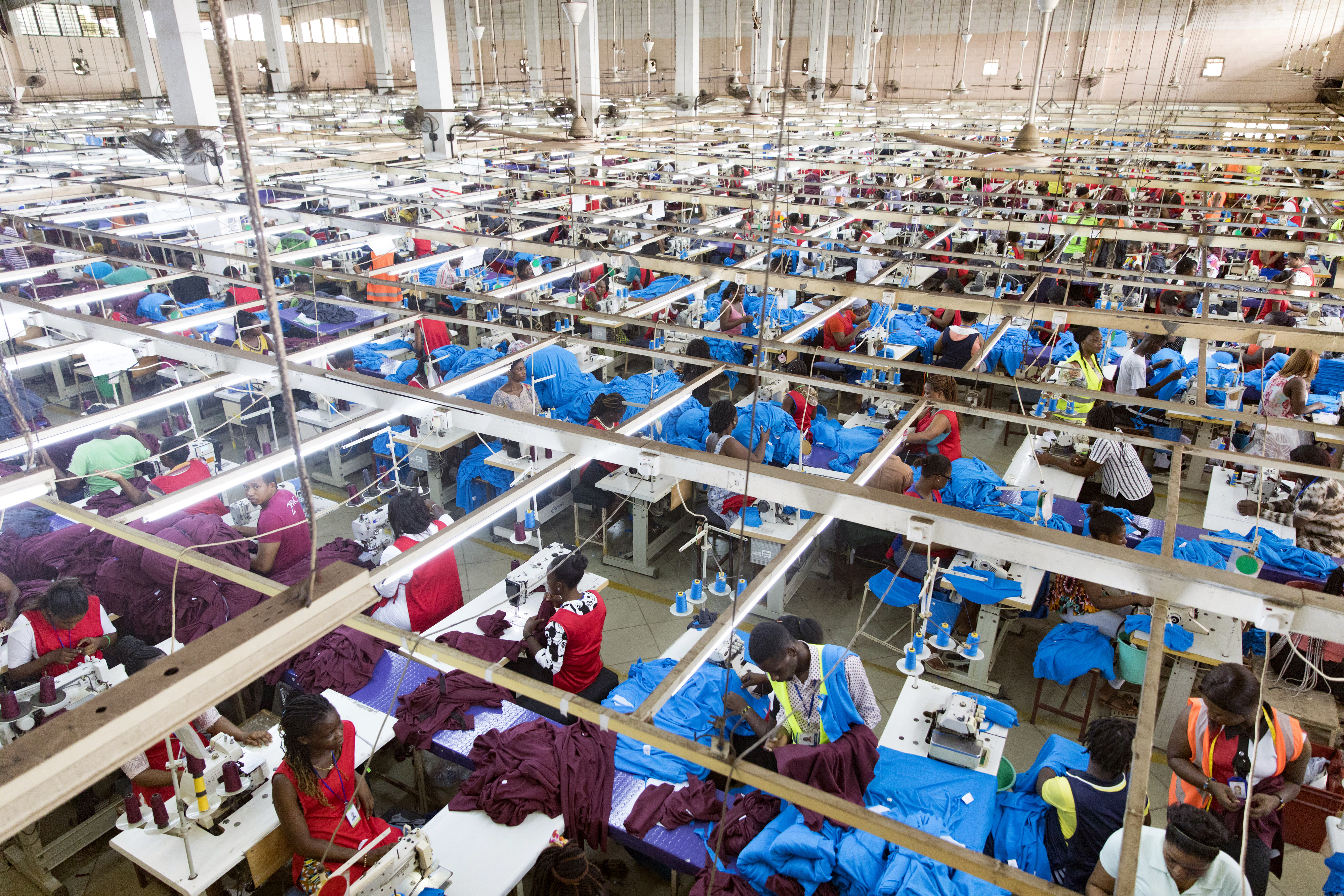Students in the metal workshop of a vocational training institution in Accra, Ghana
Copyright© Ute Grabowsky/photothek.net
Working together to create sustainable growth and jobs in Africa Special Initiative “Decent Work for a Just Transition”
About 25 million new jobs are needed in Africa every year. An already difficult employment situation is being further exacerbated by the current crises. Millions of jobs were lost as a result of the pandemic, and the impacts of Russia’s war of aggression against Ukraine are affecting African economies and labour markets.
That is why the Federal Ministry for Economic Cooperation and Development (BMZ) launched the Special Initiative “Decent Work for a Just Transition” to support German, European and African companies and investors in creating good jobs in Africa and help achieve a just transition towards climate-friendly economies and lifestyles.
What do we want to achieve?
With its Special Initiative “Decent Work for a Just Transition”, the BMZ wants to achieve several objectives, including:
- Creating decent jobs in green industries of the future
We are promoting employment and building skills in green industries. Moreover, we are supporting the ecological and digital transformation of traditional economic sectors in order to create sustainable jobs. In doing so, we are also supporting the Climate and Development Partnerships in Africa. - Creating more quality jobs for women
We are empowering female entrepreneurs and managers and corporate approaches designed to change unequal power distribution and rules that may cause disadvantages and discrimination. - Improving working conditions and promoting social protection
We are working with companies to increase incomes and improve working conditions and establish more social protection schemes at company level. We are also engaged in efforts to improve the formalisation of jobs, especially for women and girls. - Scaling up collaboration with companies
We are supporting the integration of African companies in local, regional and global supply chains. In the future, our cooperation with German and European companies will focus more on establishing links with African companies. - Strengthening global structural policy for more and better jobs
We are scaling up our strategic approaches with multilateral partners on labour standards and the topic of “Green Jobs and Green Skills”, in particular with the International Labour Organization (ILO), the EU, the World Bank and the G7.
What is our starting point?
Projects and programmes under the special initiative currently concentrate on three areas:
Who are we working with? What implementing tools are available to us?
The BMZ has mandated the following organisations to implement the Special Initiative on Training and Job Creation: Deutsche Gesellschaft für Internationale Zusammenarbeit (GIZ), KfW Development Bank, the German Academic Exchange Service (DAAD), Physikalisch-Technische Bundesanstalt (PTB) and the development agencies sequa and Engagement Global – Service for Development Initiatives.
In our efforts to create job and training opportunities, we work with not only businesses and investors but also higher education institutions, vocational training schools, business chambers and associations, and civil society organisations.
Several programmes and partnerships help to make the special initiative a success:
- German and European enterprises are working together to develop investment projects under the GIZ's Global Programme on Training and Job Creation.
- With its project entitled “Job partnerships and promotion of small and medium-sized enterprises”, GIZ is supporting the implementation of the special initiative in various partner countries and is building relationships with its African partners.
- The Investments for Employment facility of KfW Development Bank provides funding to businesses and public partners so that they can carry out measures to remove obstacles to investment, e.g. by building training centres and access roads or by upgrading the electric power supply.
- The “develoPPP for jobs” programme aims specifically to encourage development partnerships between European and African businesses that will lead to the creation of new jobs.
- The German Academic Exchange Service (DAAD) is running a University-to-Business Partnership Programme which supports practice- and work-oriented degree courses and exchange programmes in order to foster higher education in Africa.
- Through sequa-supported partnerships with business chambers and associations as well as vocational training institutions workers can be trained and upskilled in line with labour market needs and Africa's small to medium-sized companies can be strengthened.
- The Alliance for Product Quality in Africa brings together institutions with expertise in the field of quality infrastructure (such as PTB and GIZ) and African companies working in this field with the aim of improving the quality of local products in order to improve their export potential.
- And, finally, Engagement Global, too, is working with civil society organisations to implement projects and programmes designed to foster training and job creation.
As at: 21/06/2024
